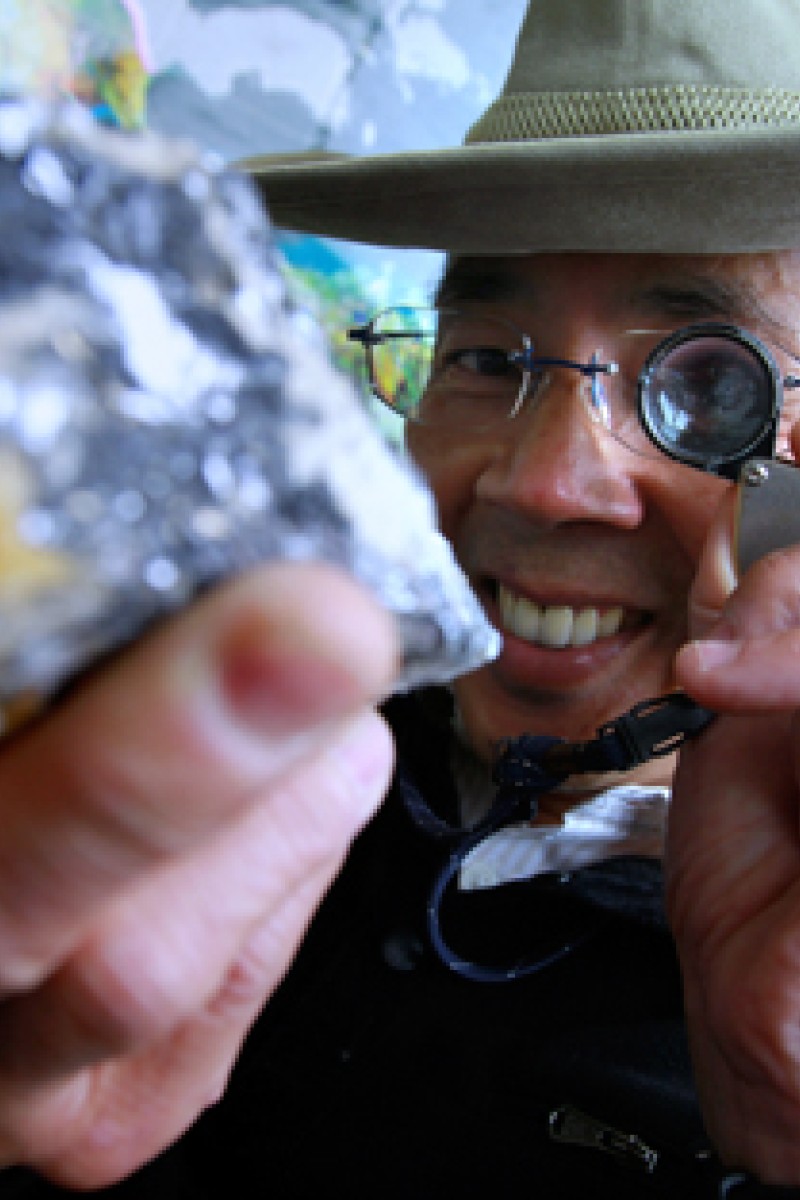
Geologists are now in great demand in Hong Kong thanks to China's thriving mining industry
 Geologist Chan Lung-sang spends much of his time working outdoors, including up to two months each year doing field work on outlying islands or constructions sites.
Geologist Chan Lung-sang spends much of his time working outdoors, including up to two months each year doing field work on outlying islands or constructions sites.Young Post meets Chan Lung-sang, a geology professor at the University of Hong Kong.
Requirements
The job of a geologist is challenging, and combines expertise from both the sciences and the humanities.
You will need a solid foundation in a science subject, such as physics (if you focus on earthquakes), chemistry (if you work on minerals and rocks) or biology (if you like fossils).
The profession also requires strong observational skills. When you pick up an unfamiliar rock and try to identify it, you will need to know what to look for. If the mineral is sharp and hard, for example, how can you decide if it is formed from quartz, or a diamond?
Bilingual talents are highly prized. Many of Chan's students now work for Hong Kong-based international mining companies. They travel to mainland mines, check out the mineral resources and report back to their English-speaking employers. Such jobs demand excellent communication and writing skills.
It is also important that geologists enjoy working outdoors and are physically strong. Chan spends up to two months each year doing field work on outlying islands or constructions sites. It is important to be able to cope with the scorching heat or freezing conditions. If you enjoy the comforts of an air-conditioned office then this job may not suit you.
Geology also requires extensive knowledge and experience of many different landscapes from around the world, including those in Europe, Asia, North America and Australia.
Qualifications
A bachelor's degree in one of the earth sciences, or more specifically in geology, is a must. HKU is the only local institution that offers such a programme.
Like lawyers and accountants, geologists must gain certificates to do the job. Aspiring geologists can apply to the Geological Society in the United Kingdom. It takes five years of related work experience, such as with a civil engineering or geotechnical company, plus a pass in an examination, to qualify as a chartered geologist. You can also register as a certified professional geologist or practicing geologist from the professional branch of the Geological Society of Hong Kong.
A bachelor's degree in physics or mathematics will be enough for certain jobs, such as studying earthquakes at Hong Kong Observatory. While you are working, you can sign up for short geology courses at HKU.
Work prospects
After the relevant training, you can choose different branches of geology, engineering, mining, environmental geology, marine geology and geophysics. There are few trained geologists in Hong Kong, yet great work opportunities - in China's thriving mining industry, new construction projects and geological research.
Chan studied geography at the Chinese University of Hong Kong and furthered his studies in geology and geophysics at the University of California, in the United States.
He taught geology for 10 years at the University of Wisconsin, in the US, before joining HKU. He specialises in tectonics ( the study of the structure, forces and movement of the earth's crust), South China's geology and unconventional applications of geophysical techniques. During the 2003 Sars outbreak, his knowledge of infrared thermography helped detect high body temperatures.
Where to apply
You can look for vacancies in the civil service, such as with the Civil Engineering and Development Department and Hong Kong Observatory.
While in the industry, you can send your reume to contractors, and engineering and ground investigation companies.
A day at work
Chan Lung-sang starts at 8am every day. On weekdays he prepares lectures and exercises for undergraduates and postgraduates. Then he visits the laboratories to check on his master's degree and doctorate students. He will deal with their problems, and look at the progress of research projects.
Chan spends Saturdays on field work. Sometimes he takes his students on hiking trips at night, or conducts workshops with other geological organisations on outlying islands. During his outdoor work, Chan will inspect soil quality, look into rock formations, collect rock samples and draw maps.